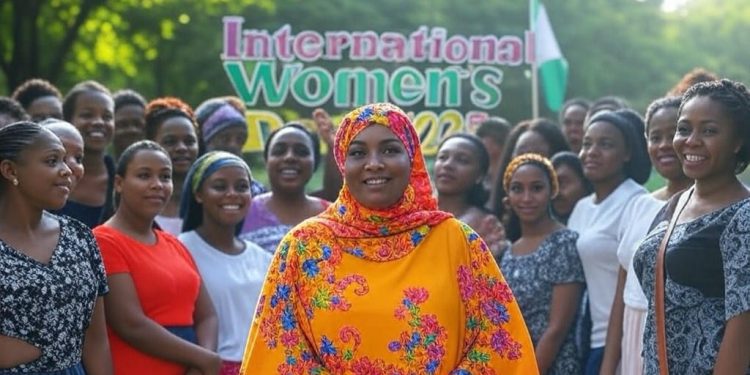In observance of International Women’s Day (IWD) 2025, the International Press Centre (IPC) and ElectHER has called on the Nigerian government and stakeholders to take decisive action to prioritize the rights, empowerment, and well-being of women and girls across the country.
The organizations stated that closing gender gaps will not only enhance economic stability but also ensure equal opportunities for women in all sectors.
The call for action is inspired by the 2025 theme of the United Nations Women, “For ALL Women and Girls: Rights. Equality. Empowerment.”
IPC and ElectHER urged the Nigerian government to accelerate efforts in promoting women’s representation and dismantling the systemic barriers that have historically hindered their participation in politics and leadership roles.
The organizations stressed the urgency of achieving Sustainable Development Goal (SDG) 5, which focuses on gender equality, and its interconnectedness with the remaining 16 SDGs.
It was noted that with less than five years left to achieve the SDGs, achieving SDG 5 on gender equality is pivotal, as it has a ripple effect on the other 16 goals and urge action to close gender gaps and boost Nigeria’s performance indicators.
In particular, IPC and ElectHER pointed out the gender gaps in Nigeria’s political landscape. Despite making strides in some areas, the Nigerian government remains lagging in female representation.
As of February 2024, women held only 6 out of 34 ministerial positions, 6 deputy governorships, and a mere 3.9% of parliamentary seats. The low numbers constantly show the systemic challenges women face in breaking into political leadership roles.
Furthermore, IPC and ElectHER referred to the global ranking by UN Women, where Nigeria ranks 116th out of 190 countries for women in executive positions.
This ranking further emphasised the need for comprehensive action to close gender gaps and improve Nigeria’s performance in this regard.
Lanre Arogundade, Executive Director of IPC, emphasized the critical role of the media in advancing democratic values and supporting women’s empowerment.
“The media’s influence in shaping gender narratives is undeniable,” Arogundade stated. “This reinforces IPC’s commitment to empowering female journalists and supporting female candidates with essential media skills. While progress has been made, achieving these goals requires continued collaboration to ensure women’s active participation in leadership roles.”
Similarly, Ibijoke Faborode, Founder and CEO of ElectHER, expressed the urgency of implementing gender-responsive reforms. Faborode stressed the connection between women’s leadership and national development.
“As we mark IWD 2025, ElectHER remains committed to equipping women with the skills, resources, and opportunities needed to thrive in political and leadership positions,” Faborode said. “The path to gender equity is not just a moral imperative. Studies show that nations with greater women’s representation in government experience higher GDP growth, increased investment in social sectors like health and education, and stronger commitments to peace and security.”
The IPC and ElectHER further proposed a comprehensive set of actions that they believe are crucial for closing the gender gap in Nigeria. These include the passage of key gender-responsive bills aimed at increasing women’s representation in politics, such as the Additional Seats Bill and the Independent Candidacy Bill.
The organizations called for the nationwide domestication of the Violence Against Persons Prohibition (VAPP) Act, ensuring its full implementation across all states to protect women and girls from violence and discrimination. “Full implementation of the VAPP Act is crucial to strengthening the legal protections available to women and girls across the country,” the statement read.
A key recommendation from the organizations is the enforcement of Affirmative Action in Political Leadership. The IPC and ElectHER urged lawmakers to expedite the passage and implementation of the 35% Affirmative Action Bill. This bill would ensure that political parties and government institutions meet the minimum quota for women in leadership and decision-making positions.
In addition to political reforms, the organizations have called for the adoption of gender-responsive budgeting. This would ensure fair resource allocation and targeted investments to address women’s economic disparities. Strengthening economic empowerment programs, particularly those that focus on access to credit, financial literacy, and entrepreneurship support, is also a priority for IPC and ElectHER.
Improving women’s access to healthcare is another critical area of focus. The organizations emphasized the need to expand access to affordable reproductive and maternal healthcare services, ensuring that policies prioritize women’s health and well-being. Access to healthcare is essential to reducing maternal mortality rates and improving overall quality of life for Nigerian women.
IPC and ElectHER called for the establishment of robust monitoring and evaluation systems to track progress on gender policies. Strengthening accountability mechanisms is vital to ensuring measurable impact and accountability in the implementation of policies that affect women and girls in Nigeria.

